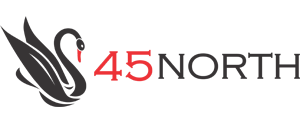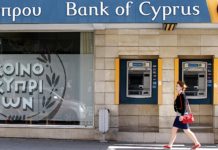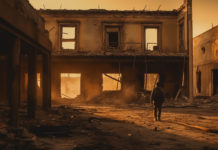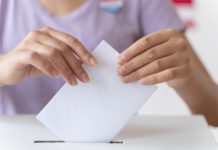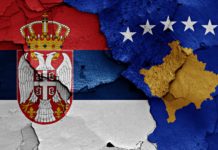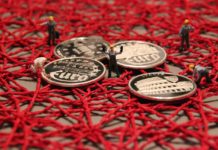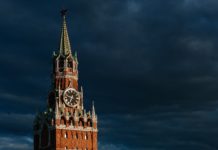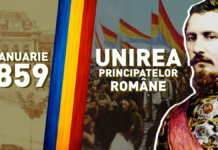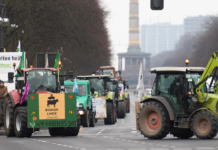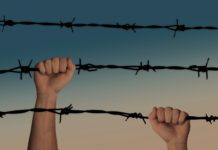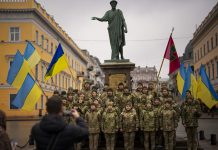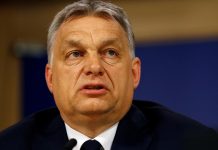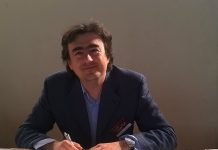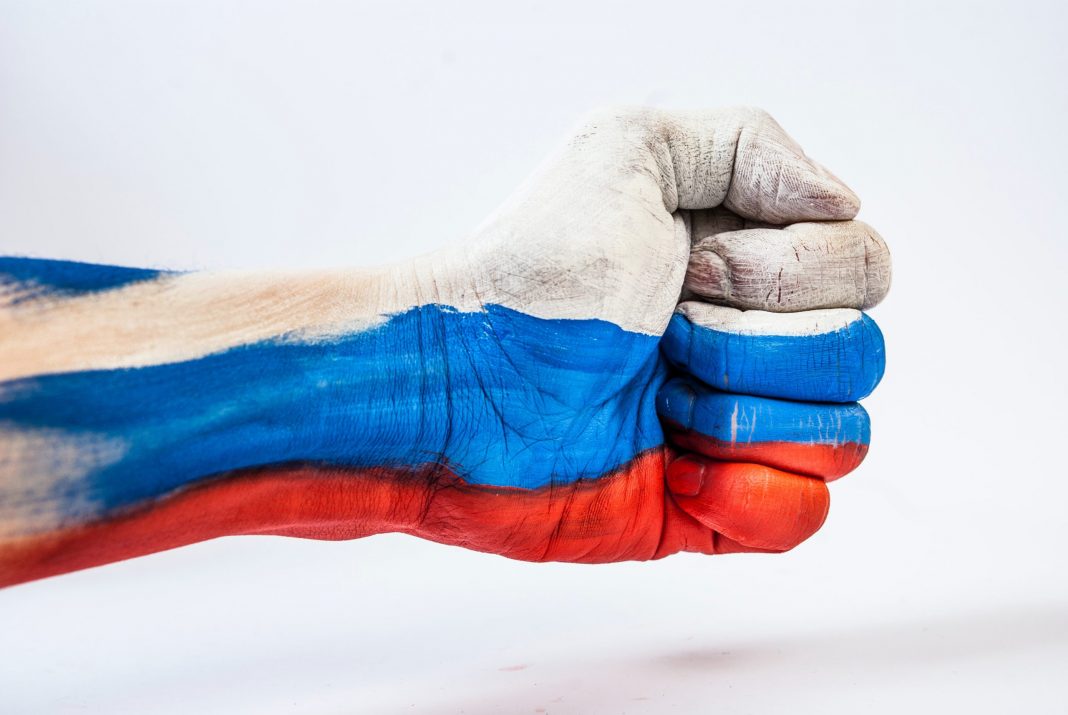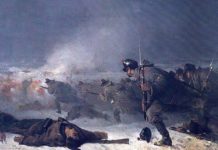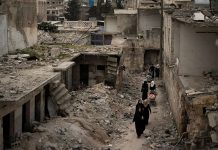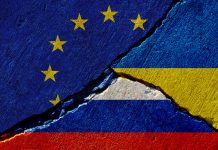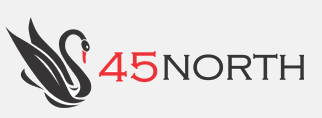Background
In August 1991 several manifestations filled the streets of Russian cities, celebrating the collapse of the Soviet Union. Russian citizens were enthusiastic about the end of communism and the elimination after seven decades of the authoritarian politicians. The communists were imprisoned and their party was eliminated. The people considered that the democratic reforms of Mikhail Gorbachev (1985-1991), advanced since 1985, will finally be applied in the newly formed Russian Federation. The new president was Boris Yeltsin, who had also promoted democratic ideals together with Foreign Minister Andrei Kozyrev.[1] Thus, the future of the Russian Federation seemed good in the public opinion. However, after several decades, we can observe that the authoritarian regime did not leave Russia.
Even though the fall of the Soviet Union let 14 states to become independent, the Russian leaders did not accept this loss.[2] Neither the citizens of those states could not detach easily from Russia. Even though the Soviet Union collapsed 30 years ago, most of its former members or other ex-communist countries are still connected or dependent on Russia, such as Belarus, Moldova, Kazakhstan, Armenia and the eastern part of Ukraine. In a comparison made by S. P. Huntington, Russia can be seen as the Eastern core surrounded by Orthodox post-soviet states, while France and Germany are the core of the Western society. Even though Kazakhstan is not Orthodox, its population is made of 40% Russians, one of its official languages is Russian and has multiple similarities with the Russian culture. Furthermore, other Muslim post-soviet countries are still in close relations with Russia, as their economy and security depend upon it. After 1991, all of these states experienced a period of developing independently and moving away from Russia. However, soon enough, they came back to governments close to Russian policies.[3] This showed its big influence over other countries from various points of view, such as economy, culture, politics and society.[4] Consequently, Russian politicians did not change their attitude throughout time. Neither the foreign policy did not change, as the Russian Federation continued to have an approach related to the realist tradition. This style dates back centuries ago, when Russia was in a continuous expansion and is present also today, under President Putin.[5] Thus, President Putin continued to rule the Russian Federation by using a traditional approach for its country, namely imposing its power as far away as possible.
Democracy versus Authoritarianism
The collapse of the Soviet Union brought by default several democratic elements to the country. However, while in the 1990s, President Boris Yeltsin gained broad powers of control and established a poor system for Russia’s political institutions, President Vladimir Putin advanced in the 2000s more policies which established an authoritarian regime in Russia. However, some people still consider his regime as a democracy, especially the citizens who are exposed more to propaganda.
In order to clarify the nature of the regime, I will define both democracy and authoritarianism. Defined broadly by Joseph Schumpeter, “the democratic method is that institutional arrangement for arriving at political decisions in which individuals acquire the power to decide by means of a competitive struggle for the people’s vote.” In a more detailed description, the democratic system is characterised by several elements, including the rule of law, separation of powers, protection of human rights, free and fair electoral competition. Inherently, democracy is based on the relationship between the state and the citizens. Opposed to democracies, the authoritarian regimes restrain or supress almost all the democratic elements. In this regime, the ruler is challenged to maintain an equilibrium in his state, because the citizens might be vulnerable regarding the freedom of their rights and the politicians might disobey from the ruler’s orders. In order to deal with these problems, a leader of an authoritarian regime is usually familiar with the method of carrots and sticks, which is very useful in keeping the state under control. For that reason, authoritarianism is characterised by a strong abuse of power coming from the ruler.
Thus, taking into consideration these general characteristics of democracy and authoritarianism, the current regime of Vladimir Putin fits in the authoritarian ideology. To be more specific, an electoral authoritarianism, because the president organised elections, in order to legitimize the status quo and offer the citizens the impression that their opinion mattered. However, the elections had controlled and limited competition, so that the result could have been predicted and the leader could not lose his power.[6] As Andrew Wilson stated, during the presidency of President Putin, the phenomenon of “virtual politics” became more visible. It implied a strong control from the political elite of the electoral candidates and results, the passivity of voters, the censorship of media and blocking international intervention over the elections. Thus, since 2000s the election outcomes have been decided by the elite before the elections took place. Organising the election was just a formal way to show the citizens they have the opportunity to agree with the predesigned polls of the government.[7] Since his third term, President Putin intensified the selection of candidates for elections, by putting “filters”, which could ensure his desired outcome. However, he started to be afraid of the international events which could affect his power, such as the 2003 Iraq War, 2004 Beslan terrorist attack and 2004 Orange Revolution. He strongly believed that U.S.A. was trying to undermine the strength of Russia and of him personally, in order to prevent the country’s uprising on the international arena.[8] These actions show significant characteristics of the regime of President Putin: statism, conservatism and an anti-Western sentiment, especially against U.S.A. However, his personal traits have been the impulse for his action and style, such as hypermasculinity, loyalty, resentment, vulnerability and craving for control, order and power. [9]
The Development of President Putin’s political regime
During his first term, President Putin had significant public support, due to the successful military operation in Chechnya and the economic growth. Furthermore, he managed to gain the majority of seats in the parliament for the party “United Russia”, which helped him advance all his legislative proposals. He had limited the power of his opponents and controlled all the media.[10] All of these have been done in just one year after his appointment as a president. Thus, he showed from the beginning great commanding and influential capabilities, which helped him until today. Moreover, he had been characterized as a “problem solver” and “the ultimate pragmatist.”[11] He organised the Russian institutions and the whole political system according to his own interests and by using the mechanism of imposed consensus. He sent his team to work in important positions in order to cover some of his actions, such as strengthening his coalition. He saw each political entity or element as an instrument through which he could support his dominance. Consequently, he made significant changes in the institutional system, reorganised the election and political party system in order to secure the political monopoly. [12]
Before and during the second term, he strengthened his networks in politics. For that reason, he changed all the individuals who worked in the system since President Yeltsin with his acquaintances, such as appointing Mikhail Fradkov, who had a KGB background, as the prime minister, and Dmitriy Medvedev, who had collaborated for a long time with President Putin, as the chief of staff.[13] Even though the president made this move in the political system and showed that he prepared the terrain for the next years, observers were confused about the president’s choice for Mikhail Fradkov, because he was not known as an associate of the president. Closely to the end of his second term, there have been new changes in the cabinet. Prime Minister Fradkov resigned and was changed with Mr. Zubkov, who was known as an acquaintance of the president. This event happened before the 2007 legislative election and 2008 presidential election when President Putin declared himself that these changes were related to the elections “We all together have to think about how to build the structure of power and management so that they would better correspond to the pre-election period and prepare the country for the period after the March presidential election.”[14] Furthermore, he had also reorganised the system of private companies, as they became state controlled. For example, Mikhail Khodorkovsky was the Chief Executive Officer of the oil company Yukos and one of the richest men in Russia who supported the opposition. He was imprisoned and later exiled from Russia, while his company was taken over by one of President Putin’s allies.[15] Thus, until 2008, the end of his second term, the president carefully and pragmatically changed the whole system according to his goals. Even though his presidential mandates ended, he did not stop his dominance.
Dmitry Medvedev was his loyal successor who was president from 2008 until 2012, while Mr. Putin was the Prime Minister. During this time, Mr. Putin continued his authoritarian actions with the help of the president, as he changed the constitution to extend the presidential and parliamentary terms and initiated a “second substitution” which made him return in the position of president in 2012. Since then, Russia experienced a disequilibrium in the political system, because the citizens acknowledged President Putin’s extreme actions and started a strong opposition. Furthermore, while domestic politics confronted with economic and political problems, the foreign affairs of Russia were also challenged because of the international reaction to the annexation of Crimea from 2014.[16] These actions created a stronger confrontation than before with the West. Thus, the state’s problems and authoritarian manoeuvres started to be exposed also outside its borders.
One issue that started since 2011 were the protests against the regime. Before President Putin was elected for the 3rd time, multiple Russian citizens went out in the streets during the winter of 2011-2012 to ask for a democratic regime. Some of them were the ones who have celebrated 20 years before the fall of communism and hoped for a better future, the others were young people who read the Russian history or the international news and wanted a democratised country. When they realised in 2011 that their country was transforming into an authoritarian regime, they had to do something about it. Thus, they created banners and rallied in the streets for free and fair elections.[17] The president was already used to organising unfair parliamentary and presidential elections, so he continued to do this also in 2012. However, this time, the citizens condemned the results, because for the last 4 years President Medvedev had brought into Russia a more liberal and pro-Western approach. This helped the society to face the truth about their own country.[18] The massive protests which took place in multiple Russian cities represented the starting point for the creation of a strong political opposition and for demanding political changes.[19] However, in order to combat this revolt and secure his next years of presidency, several protesters were arrested and President Putin started a conservative campaign which constrained their beliefs. The new legislation spread the idea that the liberal protestors did not support traditional Russian values and patriotism. Furthermore, they were seen as people funded by the West to unbalance the internal affairs of Russia.[20]
The protests of 2011 and the formation of a new political opposition evolved throughout time and its results could be seen recently. Alexei Navalny was one of the most vociferous opposers of Putin’s regime and for whom there have been significant protests in 2021. Alexei Navalny was one of the protesters who was arrested in 2011 and imprisoned for 2 weeks for “defying a government official”.[21] After this event, his blog, where he posted proofs of corrupt actions made by the government, became available in English. Since then, he became one of the most popular opposers of the regime and launched multiple projects, led several protests and published various articles and videos against the government, through his Anti-Corruption Foundation. However, because of all his actions, he was sanctioned and imprisoned for several times by the government. The biggest “sanction” for him was in 2020 when he was poisoned on President Putin’s orders. He successfully recovered in Germany, but when he came back in Russia he was imprisoned. Now, he must complete a sentence of more than 2 years in poor conditions, while his health is being neglected by the authorities. All of these events became public, as Alexei Navalny has a videoblog with more than 6 million subscribers and a Twitter account with more than 2 million followers, where he talked about his health condition and continued to present the hidden affairs of the Government while being in arrest. Furthermore, he revealed the telephonic conversation with a FSB agent who admitted that in his underwear it has been put Novichok. Thus, most of the Russian young people who follow him and the international community started protests which condemn the government actions against the opposer. Furthermore, a lot of democratic states, such as U.S.A. together with European Union’s members, have imposed sanctions on Russia in order to try to put this situation under control. The response of President Putin was silencing Alexei Navalny’s influence by limiting the access to online posts about the anti-government protests or investigations, expelling several Ambassadors from Russia and arresting the people who rallied in the streets. Furthermore, he described one of Alexei Navalny’s videos, which was accusing him of corruption, as “boring.”[22] Thus, the government’s stance related to these events is unwavering and continues to fight for keeping its influence over Russia.
As Brian Taylor compared the regime of President Putin with the nervous system of the human body, the president may be associated with the brain. As a leader, he controls the whole political system, from domestic to foreign policies, like the brain which dictates the reasoning, the emotions and the ideas of the human.[23] Another comparison was made by Alexei Navalny, who described United Russia Party as being full of “crooks and thieves” and the president as “sucking the blood out of Russia”. He also stated that today’s Russia is similar to Tsarist Russia, as it has a patronage system, with the power concentrated in Kremlin.[24]
An important aspect of President Putin is his longevity as a ruler. This has a tremendous impact on the authoritarian characteristics of his regime. Under the Russian Constitution he can stay in office until 2024.[25] However, in July 2020 he organized a referendum for almost 200 amendments of the constitution. Among them, there was one which let him candidate for another 2 six-year terms.[26] Thus, he might be the leader of Russia until 2036, making him the longest-ruling leader, more than any Russian leader from the past century. He would have a record of 33 years as a president, more than a quarter-century, and could rise at the performance to be compared with the longevity of the Russian Emperor Catherine II the Great. In addition, President Putin considers that Russia depends upon him, as he is the “savior” who can prevent Russia from collapsing or, as the politician Vyacheslav Volodin mentioned, “no Putin, no Russia.” [27] His longevity is one of the reasons why many analysts say that he “deserves his own «ism» because there is a coherent set of political practices and especially an operating «code» that has remained fairly consistent over time. Thus, Putinism is more like «Tatcherism» or «Reaganism» than like «Marxism»—it is not a fully developed, all-encompassing ideology, but a system of rule and a guiding mentality, a personality and a historical moment.” However, “Putinism” is not an ideology, but it looks like one, as the president does not like the word “ideology”. “Putinism” is not related just to the actions of the president, but of his whole team. He is the one who usually comes with the ideas, but his associates from the political network are the ones who work to implement them or, in some cases, advise him on how to act.[28] Furthermore, to make a reference from Russian literature, in “Anna Karenina”, written by Lev Tolstoy, there is the following reference to political regimes “democracies are all alike; every nondemocracy is undemocratic in its own way.”[29] Thus, “Putinism”, which is associated with this authoritarian regime, can also be regarded from this perspective of uniqueness.
In conclusion, the beginning of the third millennium brought new changes in the Russian Federation. Even though during President Yeltsin the citizens lived in a regime with elements from both democracy and authoritarianism, they hoped for a complete process of transition to democracy. The regime of President Putin was different. He controlled the media, the elections, all the institutions, suppressed the opposition and did many things which limited the Russian society and politics more than President Yeltsin did. Even though it is an educated and urbanized society, Russia currently has an authoritarian regime which will thrive at least until President Putin resigns. However, as I have already mentioned, his longevity as a ruler is a key element in this political regime and it would be hard to change it. Moreover, it could be observed a timeline of people rallying in the streets, in 1991 to celebrate and in 2011 and 2021 to protest. If this would have been a constant practice, the next rallies would have been in 2031. However, the president took unfortunate decisions which, undoubtedly, provoked the Russian society to have big demonstrations in 2022. For the third time in a row, their purpose is to protest, not celebrate.
“As antiwar protests continued across Russia, the police detained at least 411 people in 13 cities on Monday,” says the monitoring group OVD-Info. There have been “at least 6,435 detentions in Russia since the invasion of Ukraine on Feb. 24.” https://t.co/fvV7ZDP9Ki pic.twitter.com/lQoRYdUBA2
— Kenneth Roth (@KenRoth) March 1, 2022
[1] Vladimir Gelʹman, Authoritarian Russia: Analyzing Post-Soviet Regime Changes (Pittsburgh, PA: University of Pittsburgh Press, 2015), 2.
[2] Daniel Chirot, Contentious Identities: Ethnic, Religious and Nationalist Conflicts in Today’s World (New York: Routledge, 2011), 51-52.
[3] Samuel P. Huntington, Ciocnirea Civilizațiilor și Refacerea Ordinii Mondiale, trans. Liana Stan (Bucharest: Litera, 2019), 297-298.
[4] Ibid, 17-18.
[5] John Mearsheimer, The Tragedy of Great Power Politics (University of Chicago, 2001), 190.
[6] Vladimir Gelʹman, Authoritarian Russia: Analyzing Post-Soviet Regime Changes (Pittsburgh, PA: University of Pittsburgh Press, 2015), 5-7.
[7] Ibid., 94-95.
[8] Bryan D. Taylor, The Code of Putinism (New York: Oxford University Press, 2018), 6.
[9] Ibid., 40.
[10] Vladimir Gelʹman, Authoritarian Russia: Analyzing Post-Soviet Regime Changes (Pittsburgh, PA: University of Pittsburgh Press, 2015), 38-41.
[11] Bryan D. Taylor, The Code of Putinism (New York: Oxford University Press, 2018), 9.
[12] Vladimir Gelʹman, Authoritarian Russia: Analyzing Post-Soviet Regime Changes (Pittsburgh, PA: University of Pittsburgh Press, 2015), 10-14.
[13] Bryan D. Taylor, The Code of Putinism (New York: Oxford University Press, 2018), 5-6.
[14] C. J. Chivers, “Putin Shuffles Government, Posing Mystery”, The New York Times, September 13, 2007, https://www.nytimes.com/2007/09/13/world/europe/13russia.html
[15] Bryan D. Taylor, The Code of Putinism (New York: Oxford University Press, 2018), 5-6.
[16] Vladimir Gelʹman, Authoritarian Russia: Analyzing Post-Soviet Regime Changes (Pittsburgh, PA: University of Pittsburgh Press, 2015), 10-16.
[17] Ibid., 1.
[18] Bryan D. Taylor, The Code of Putinism (New York: Oxford University Press, 2018), 19.
[19] Vladimir Gelʹman, Authoritarian Russia: Analyzing Post-Soviet Regime Changes (Pittsburgh, PA: University of Pittsburgh Press, 2015), 14.
[20] Bryan D. Taylor, The Code of Putinism (New York: Oxford University Press, 2018), 20.
[21] Julia Ioffe, “Putin’s Big Mistake?”, The New Yorker, December 6, 2011, http://www.newyorker.com/online/blogs/newsdesk/2011/12/putins-big-mistake.html
[22] ***, “Alexei Navalny: Russia’s vociferous Putin critic”, BBC News, March 1, 2021, https://www.bbc.com/news/world-europe-16057045
[23] Bryan D. Taylor, The Code of Putinism (New York: Oxford University Press, 2018), 2.
[24] ***, “Alexei Navalny: Russia’s vociferous Putin critic”, BBC News, March 1, 2021, https://www.bbc.com/news/world-europe-16057045
[25] Bryan D. Taylor, The Code of Putinism (New York: Oxford University Press, 2018), 1.
[26] Scott Neuman, “Referendum in Russia Passes, Allowing Putin To Remain President Until 2036”, NPR, July 1, 2020, https://text.npr.org/886440694
[27] Bryan D. Taylor, The Code of Putinism (New York: Oxford University Press, 2018), 196.
[28] Ibid, 2-9.
[29] Vladimir Gelʹman, Authoritarian Russia: Analyzing Post-Soviet Regime Changes (Pittsburgh, PA: University of Pittsburgh Press, 2015), 6.
